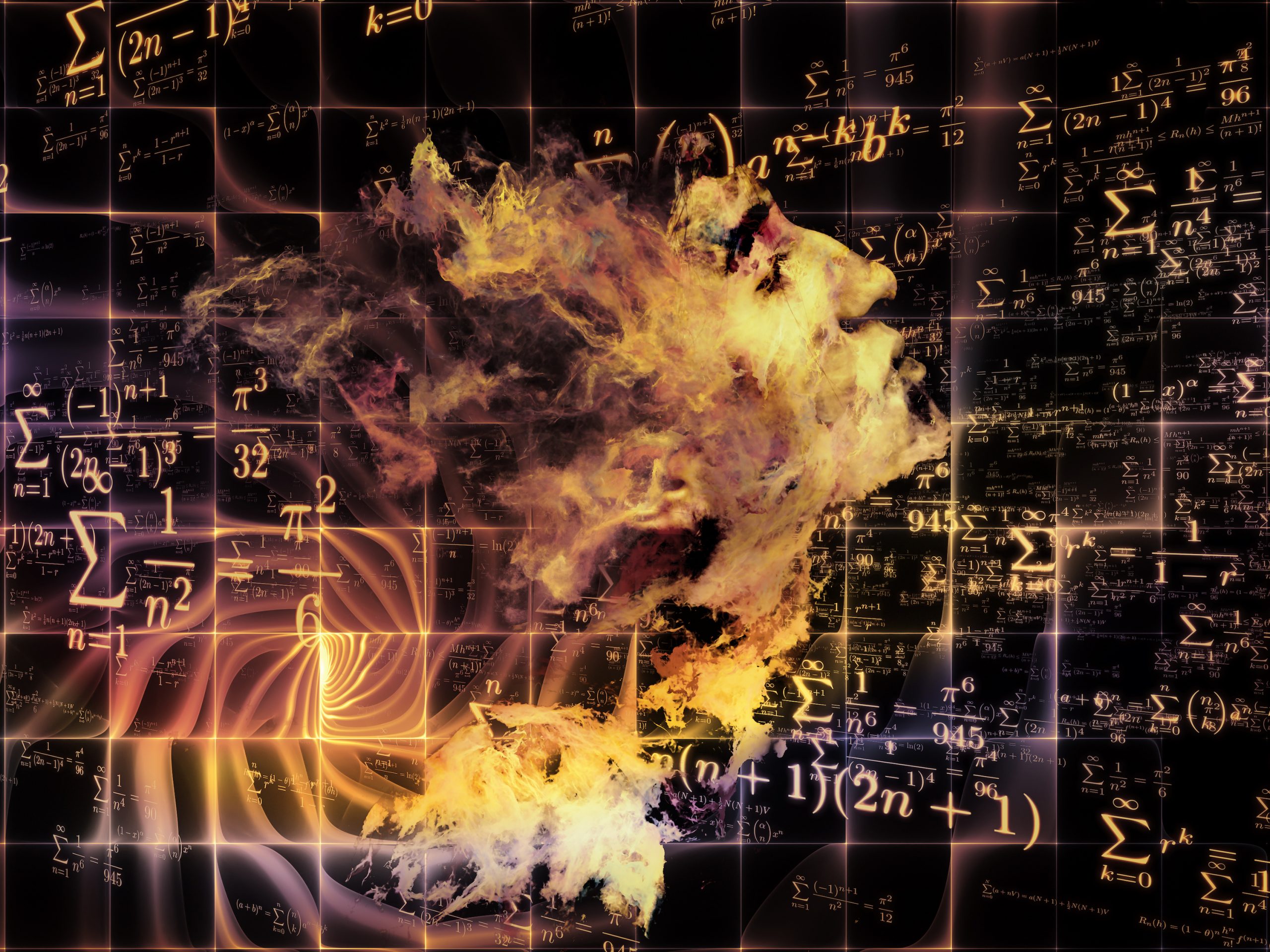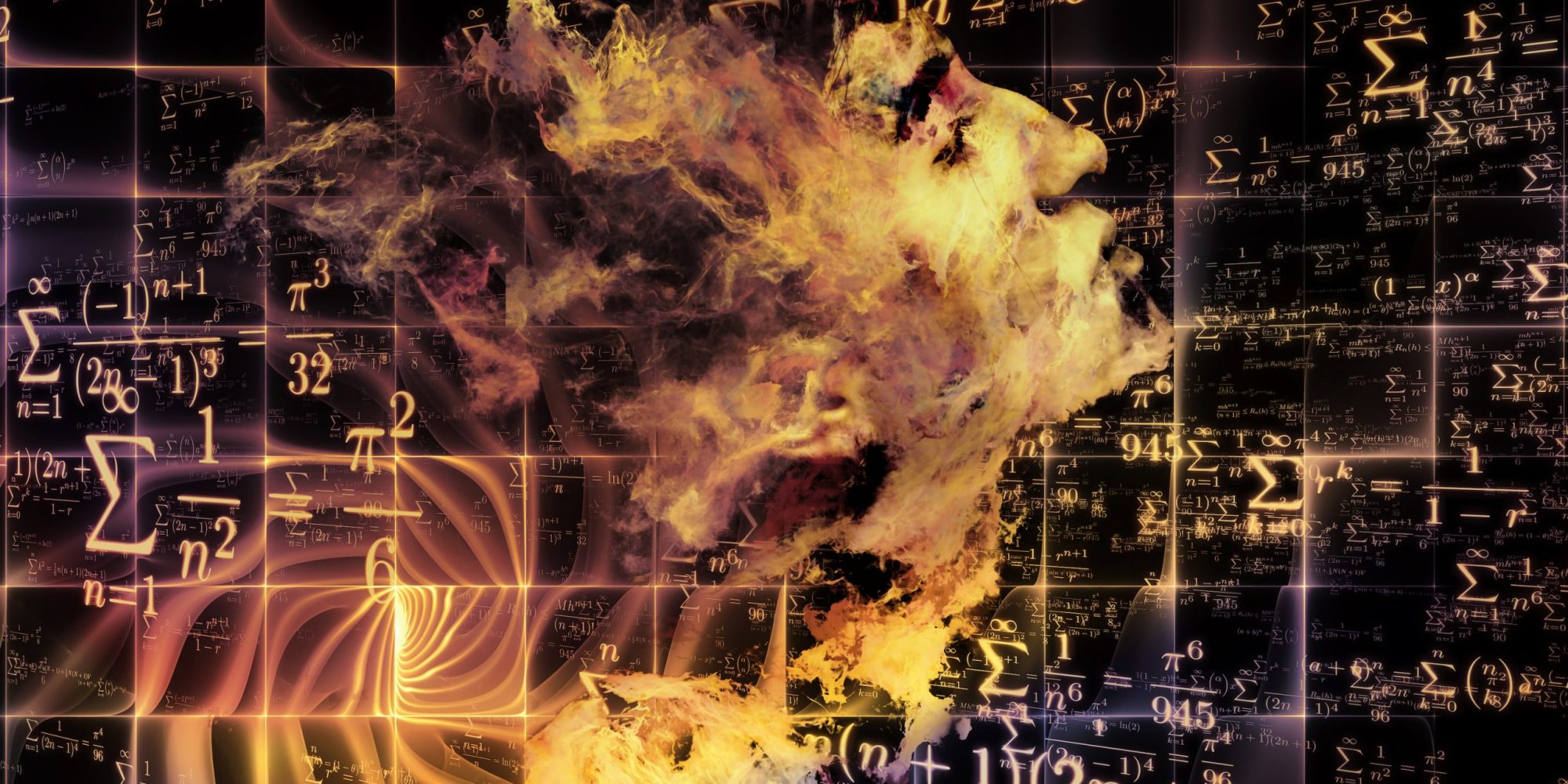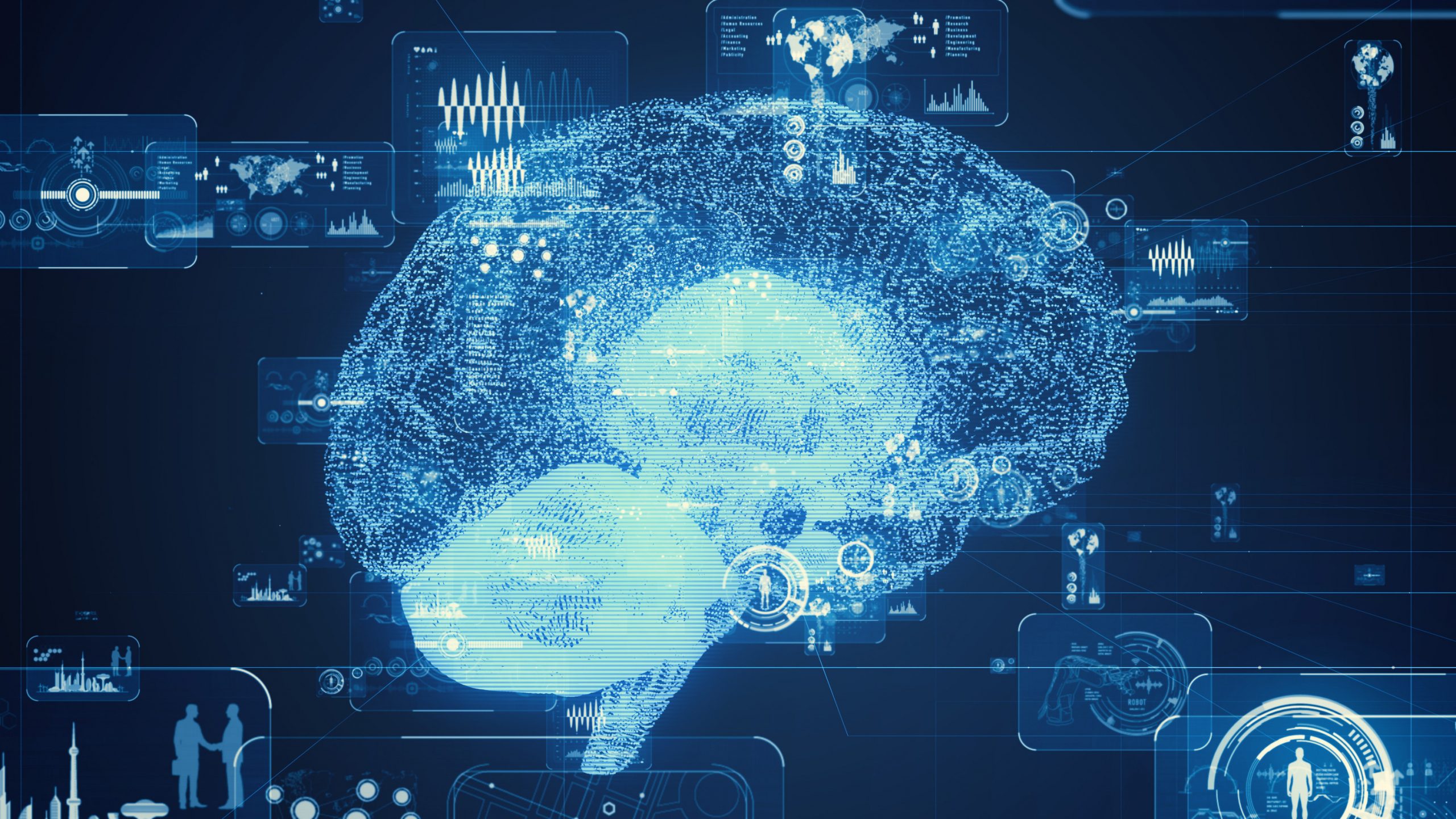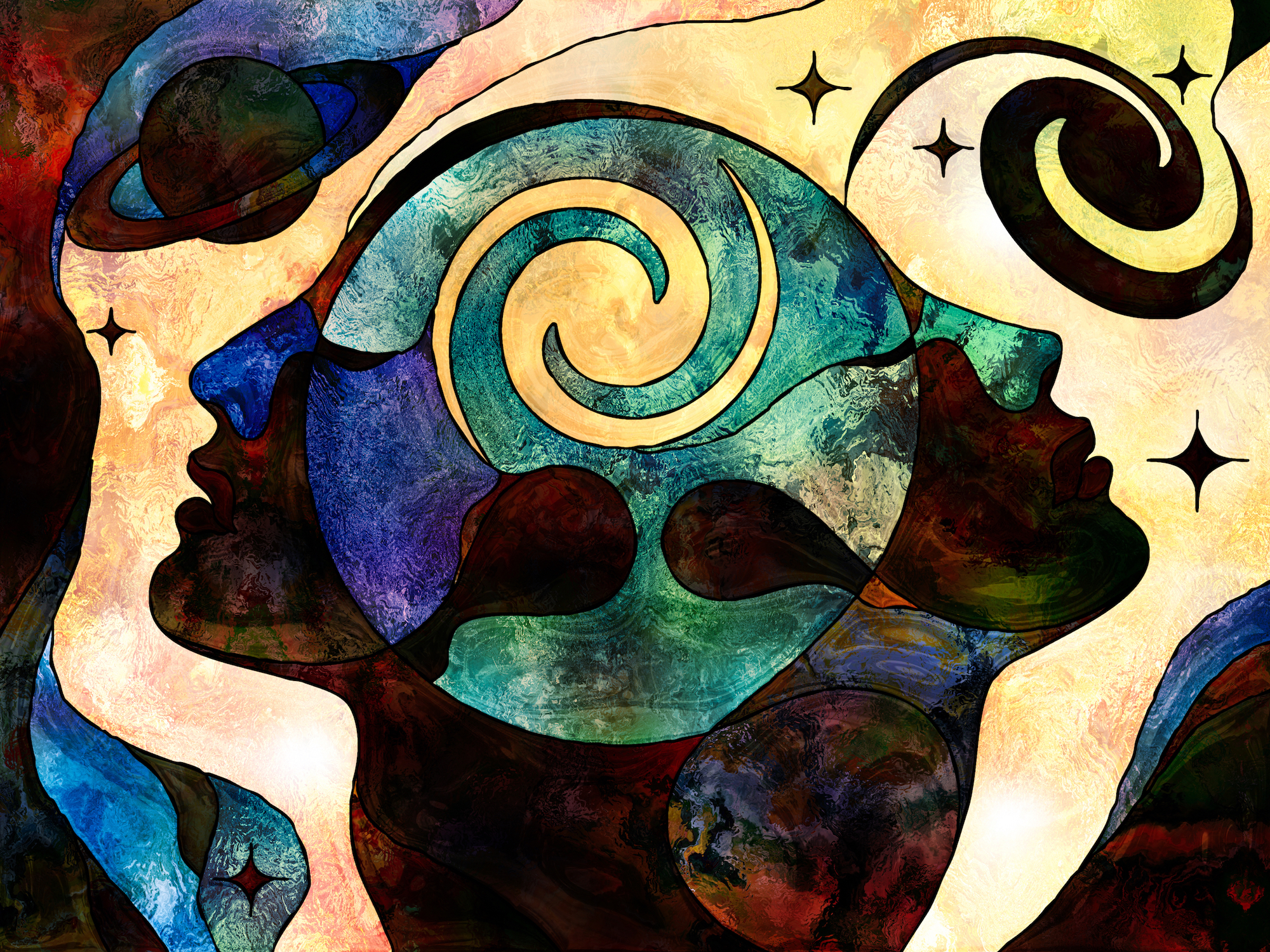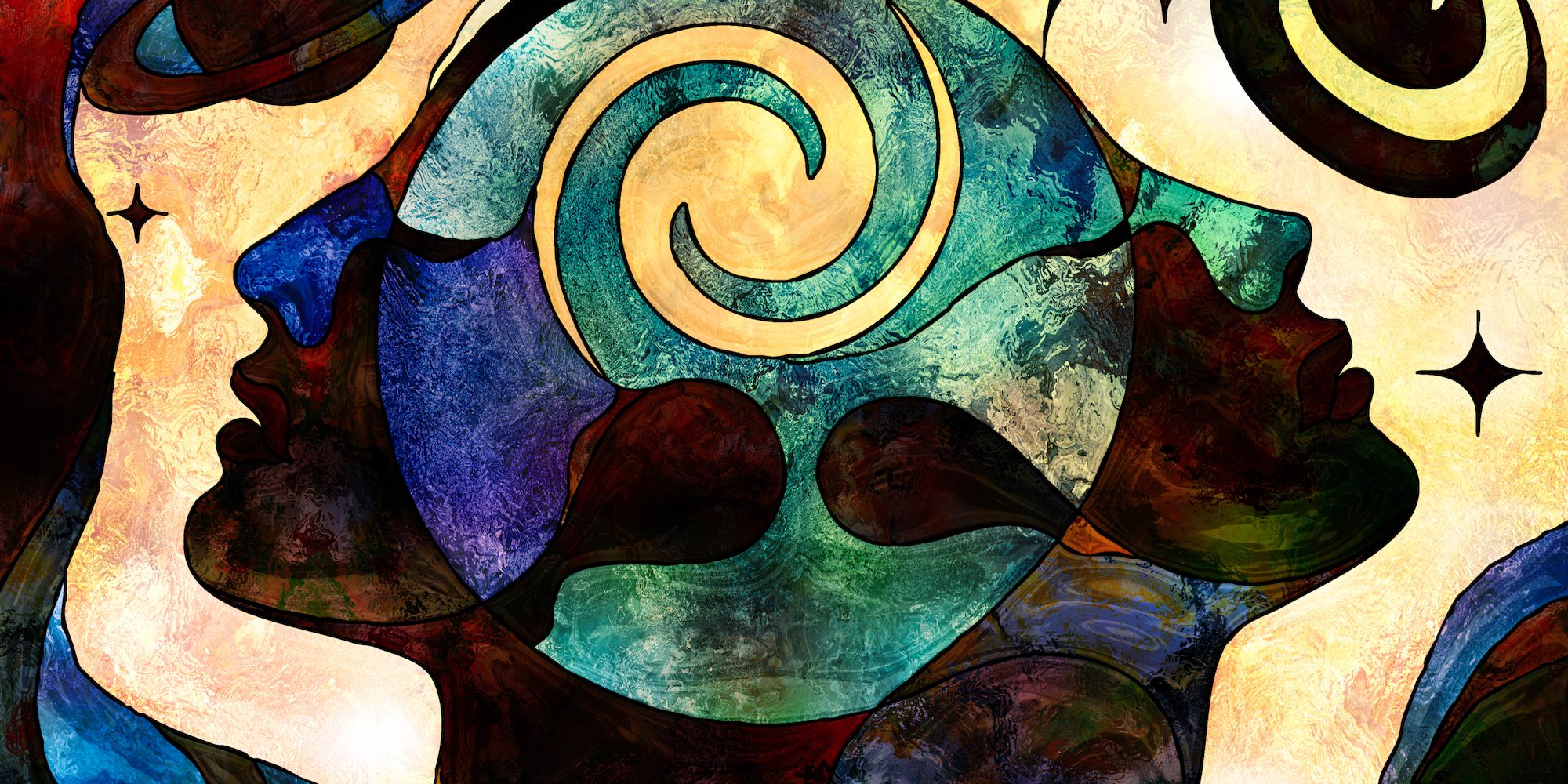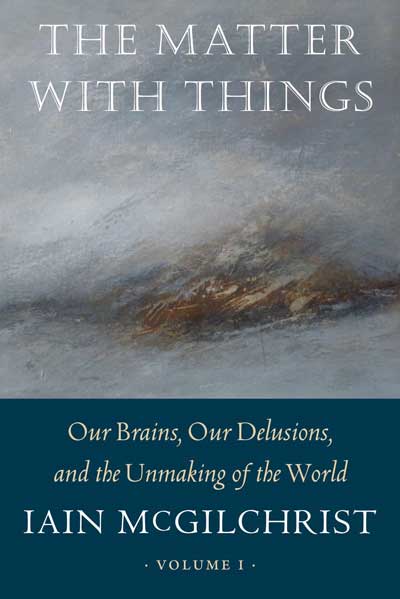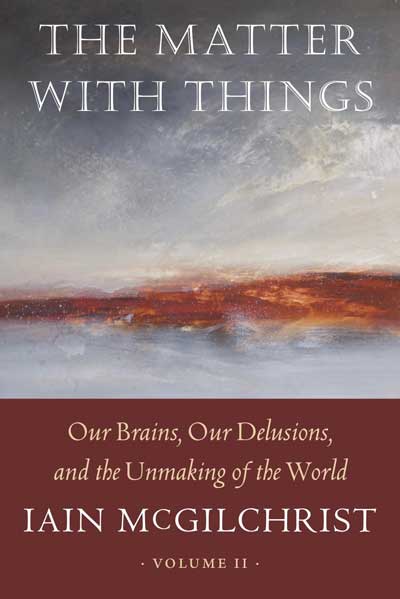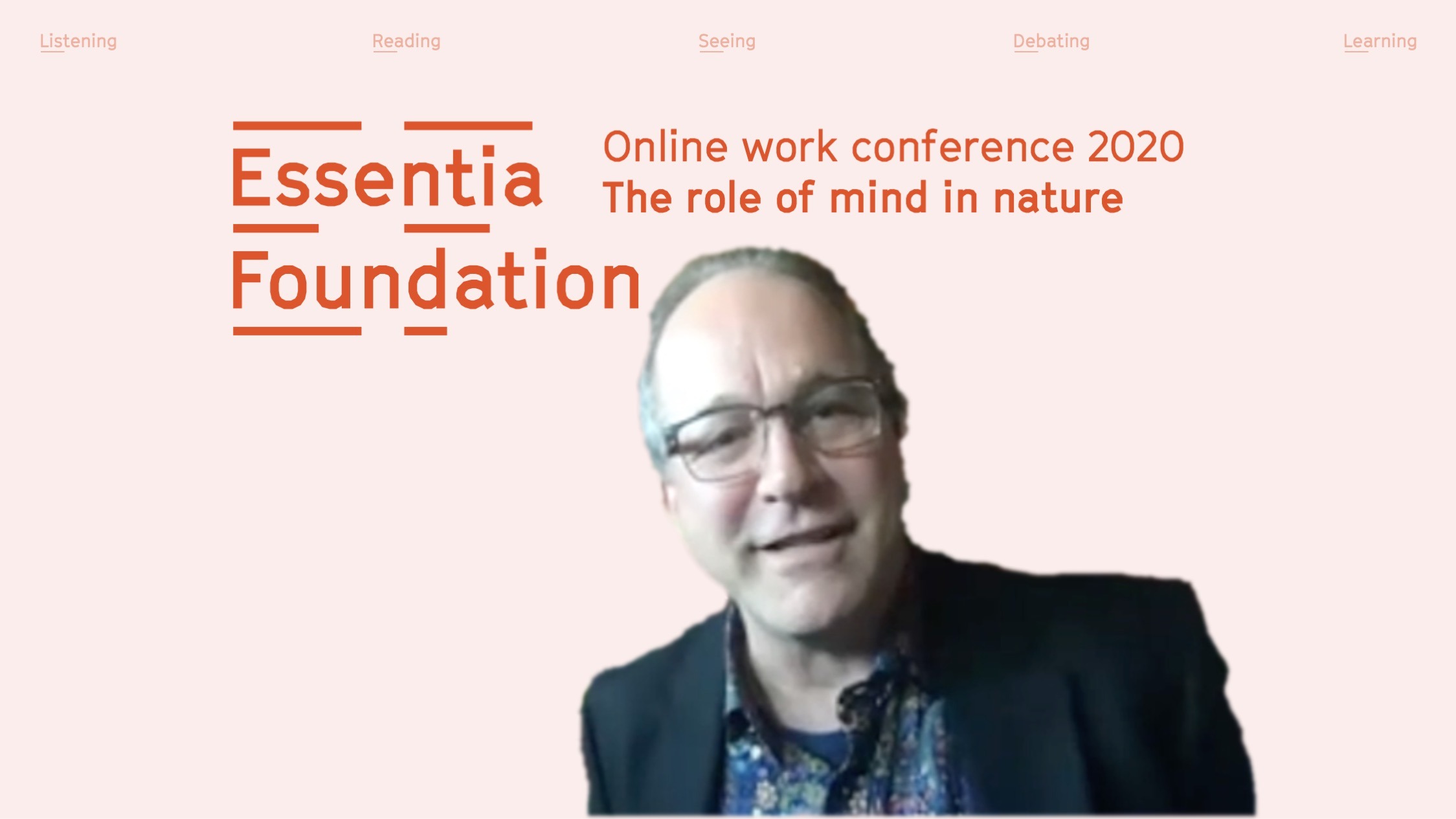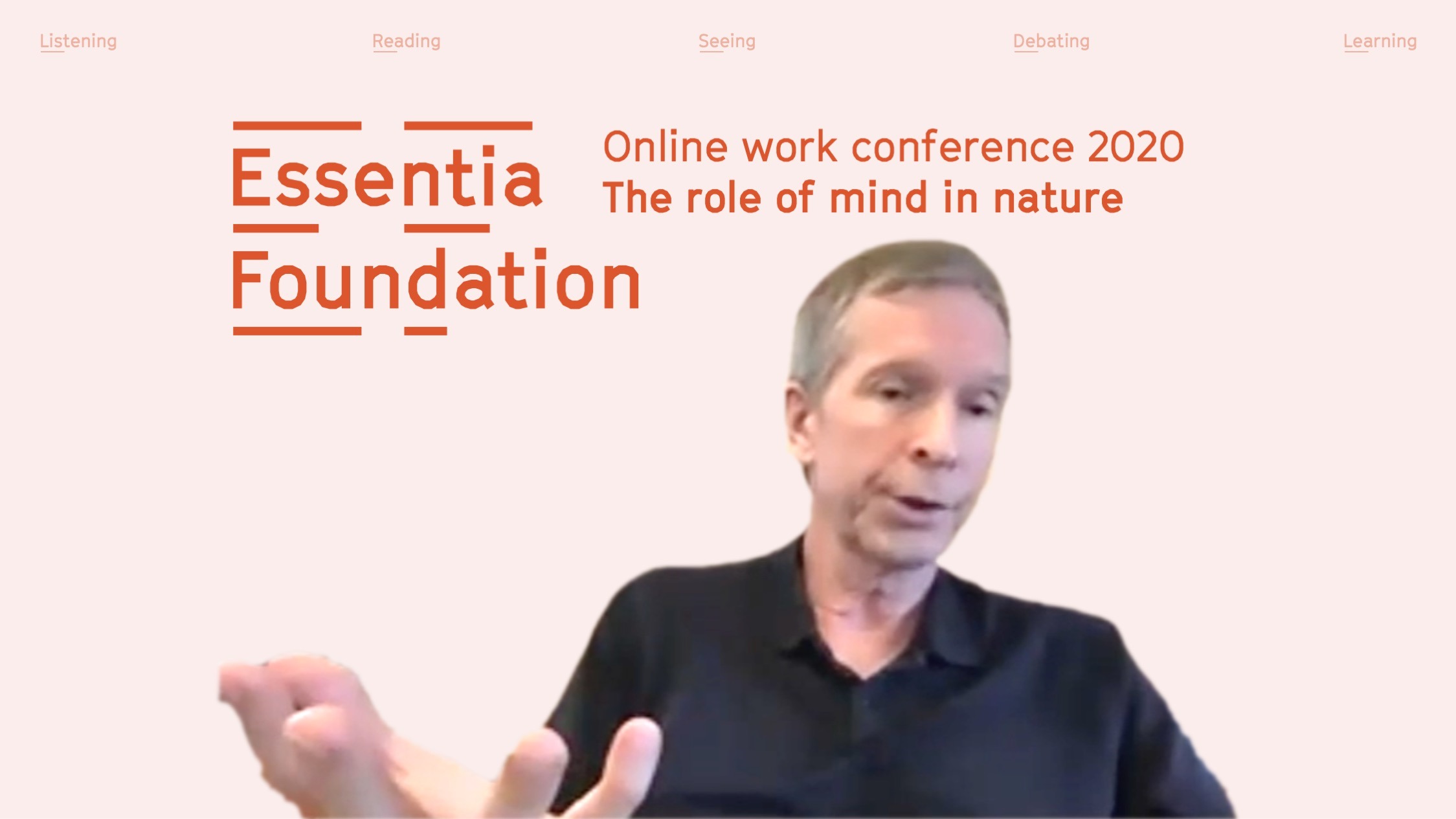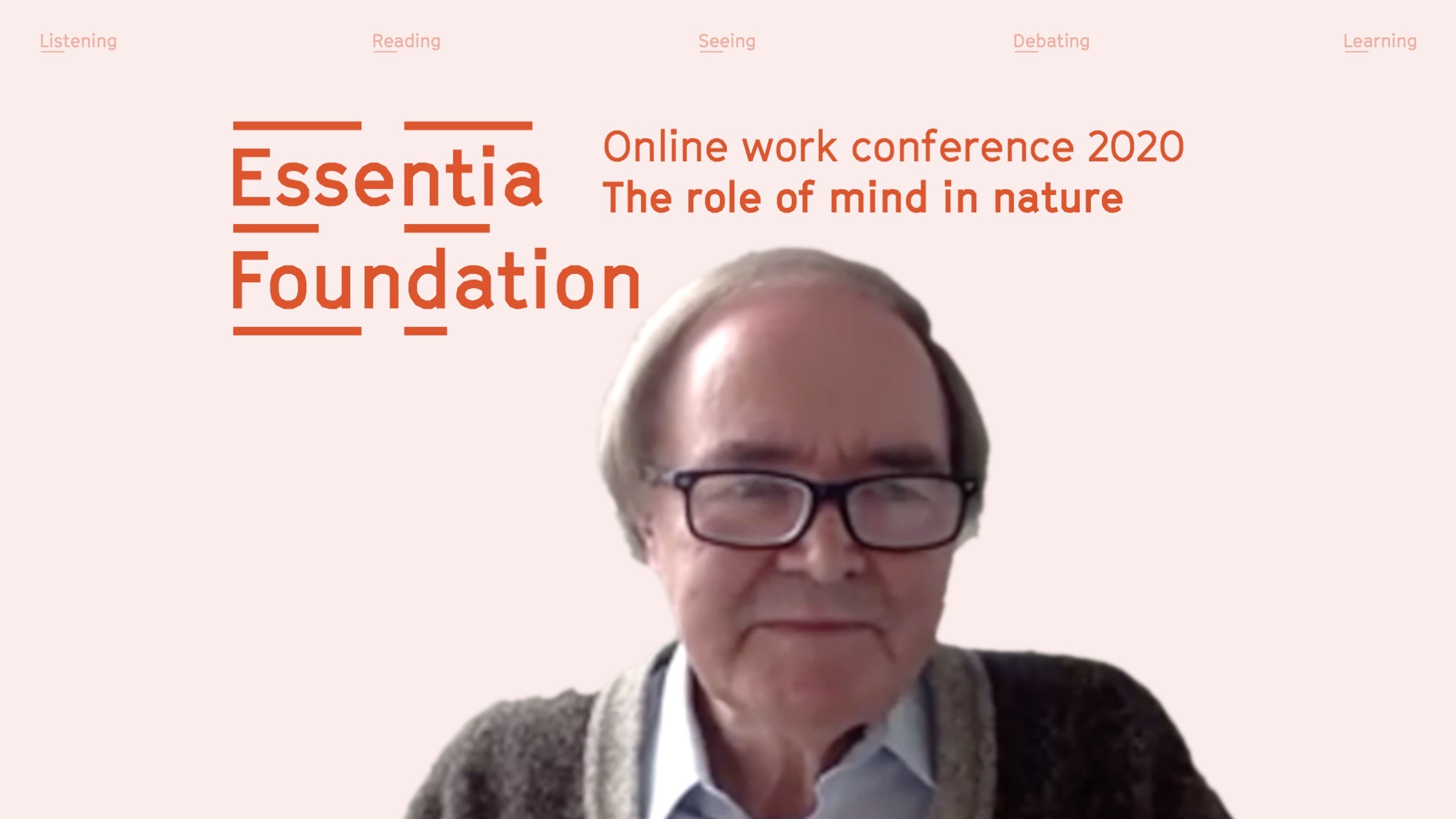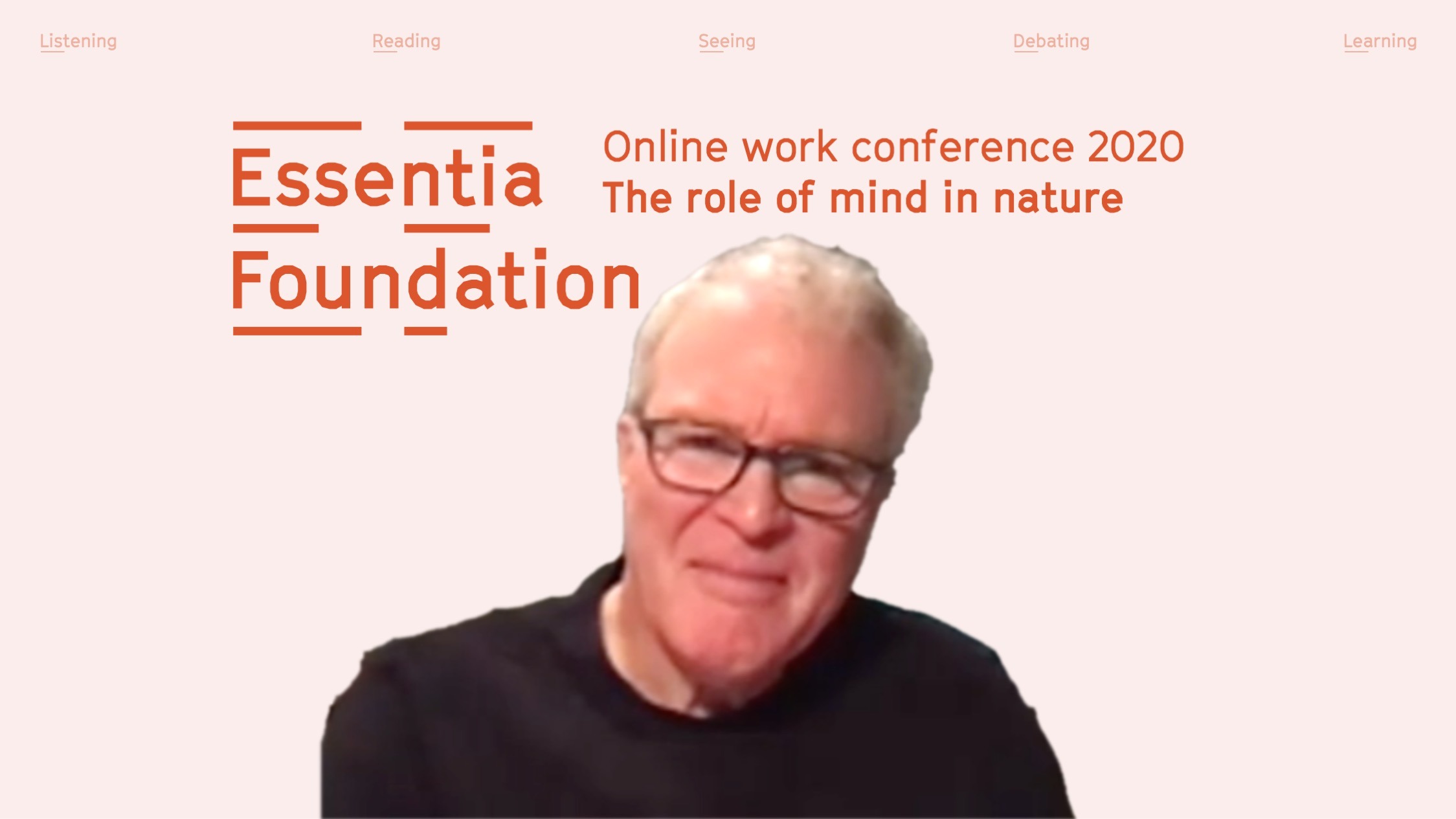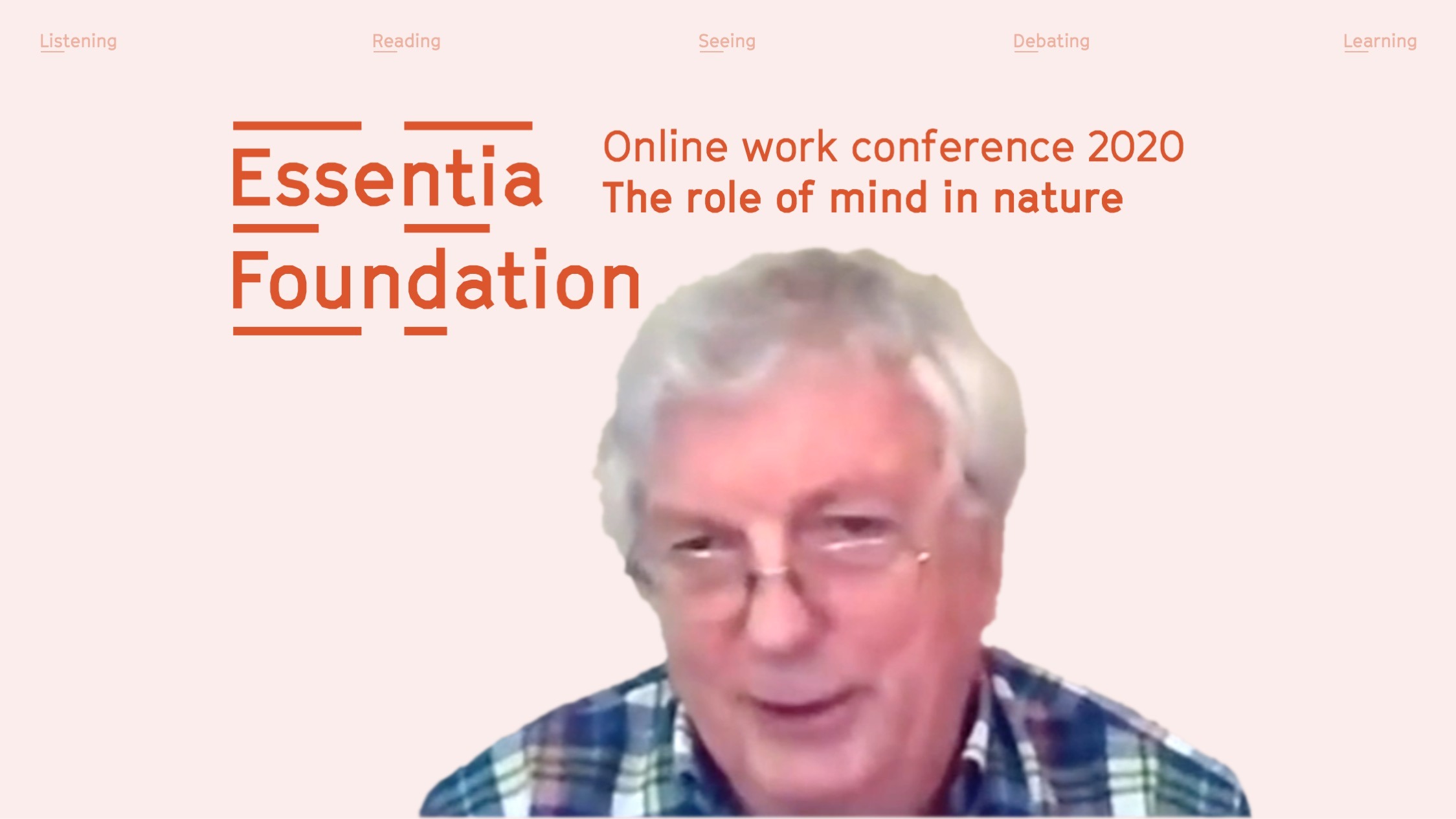In a very short presentation there is no possibility of arguing for a position on consciousness: so I will simply state my conclusions, argued for at length in my new book The Matter with Things: Our Brains, Our Delusions and the Unmaking of the World. Consciousness is irreducible, primordial and omnipresent: not a thing, but a creative process. Matter is a theoretical abstraction that no one has seen. The term clearly has meaning, however: it refers to the qualities of certain elements within consciousness which offer relative resistance and relative permanence as a necessary part of that creative process.
I cannot avoid referring en passant to the hemisphere hypothesis expounded in The Master and his Emissary, and greatly developed in The Matter with Things. Again there is no possible way I can give an account of the argument here. What one needs to know is that the two hemispheres have evolved so as to attend to the world, and therefore bring into being the only world we can know, in two largely opposing ways: the left hemisphere paying narrowly targeted attention to a detail that we need to manipulate; the right hemisphere paying broad, open, sustained, vigilant, uncommitted attention to the rest of the world while we focus on our desired detail. This means that each hemisphere brings into being a world that has different qualities. These could be characterised in the simplest possible terms something like this. In the case of the left hemisphere, a world of things that are familiar, certain, fixed, isolated, explicit, abstracted from context, disembodied, general in nature, quantifiable, known by their parts, and inanimate. In the case of the right hemisphere, a world of Gestalten, forms and processes that are never reducible to the already known or certain, never accounted for by dissolution into parts, but always understood as wholes that both incorporate and are incorporated into other wholes, unique, always changing and flowing, interconnected, implicit, understood only in context, embodied and animate. The left hemisphere is a world of atomistic elements; the right hemisphere one of relationships. Most importantly the world of the right hemisphere is the world that presences to us, that of the left hemisphere a re-presentation: the left hemisphere a map, the right hemisphere the world of experience that is mapped.
In this talk I have chosen to make some very simple reflections on one aspect of consciousness: its relational nature. Indeed I hold that everything is relational, and that what we call things, the relata, are secondary to relationship. Consciousness is always ‘of’ something: what is the nature then of that something that is both in part constitutive of, and in part constituted by, that relationship?
In the last century or so, there has been a tendency, at least in popular discourse, to pull reality in opposing directions. Some scientists, whether they put it this way or not when they are asked to reflect, still carry on as if there just exists a Reality Out There, the nature of which is independent of any consciousness of it: naïve realism. These are usually biologists; you won’t find many physicists who would think like that. In reality, we participate in the knowing: there is no ‘view from nowhere’. As John Archibald Wheeler put it: ‘this is a participatory universe’. Of crucial importance is that this fact does not in any way prevent science legitimately speaking of truths – far from it. We desperately need what science can tell us, and postmodern attempts to undermine it should be vigorously resisted. Two important truths, then: science cannot tell us everything; but what science can tell us is pure gold. Any attempt to suppress science (I distinguish science sharply from technology), for whatever reason, is dangerous and wrong.
Meanwhile, on the other hand, there are philosophers of the humanities who think that there is no such thing as reality, since it’s all Made Up Miraculously By Ourselves: naïve idealism. Such people, by the way, never behave as though there was no reality. Nor of course, by its own logic, can they claim any truth for their position.
These viewpoints are closer than they look. One party fears that if what we call reality were in any sense contaminated by our own involvement in bringing it about it would no longer be worthy of being called real. The other fears that, since we manifestly do play a part in its coming about, it’s already the case that it can’t be called real. But just because we participate in reality doesn’t mean we invent it out of nowhere, or solipsistically project it on some inner mental screen; much less does it mean that the very idea of reality is thereby invalidated.
I take it that there is something that is not just the contents of my mind – that, for example, you exist. There is an infinitely vast, complex, multifaceted, whatever-it-is-that-exists-apart-from-ourselves. The only world that any of us can know, then, is what comes into being in the never-ending encounter between us and this whatever-it-is. What is more, both parties evolve and are changed through the encounter: it is how we and it become more fully what we are. The process is both reciprocal and creative. Think of it as like a true and close relationship between two conscious beings: neither is of course ‘made up’ by the other, but both are to some extent, perhaps to a great extent, ‘made’ what they are through their relationship.
The relationship comes before the relata – the ‘things’ that are supposed to be related. What we mean by the word ‘and’ is not just additive, but creative.
There is no one absolute truth about the world that results from this process, but there are certainly truths: some things we believe will be truer than others. The nature of the attention we bring to bear is of critical importance here. A maximally open, patient, and attentive response to whatever-it-is is better at disclosing or discerning reality than a response that is peremptory, insensitive, or – above all – shrouded in dogma.
Importantly, what we experience is not just an image of a world ‘outside’, some sort of projection on the walls of a Cartesian theatre inside our heads, and watched by an intracerebral homunculus on an intracerebral sofa. Such a viewpoint could be predicted to arise from the left hemisphere’s attempt to deal with a reality it does not understand, and for which everything is a representation. True, we can deceive ourselves by mistaking our own projections for reality – and we often do; but that does not entail that we are always victims of self-deception. When we are properly attentive, what we experience is the ‘real deal’, though it be only a tiny part of all that is. To appreciate that, you need the right hemisphere – and preferably, of course, both hemispheres – to be in play. It is true that we can see the world only partially, but we still each see the world directly. It is not a re-presentation, but a real presence: there isn’t a wall between us and the world. Our experience is of whatever-it-is and not another thing, even if we can’t get away from the fact that it is we who experience it.
Yet, I say, we take part in its creation. How can that be?
An analogy may help get closer to what I mean. There is such a ‘thing’ as Mozart’s G minor quintet. It is in a way quite specific. It certainly is not a fantasy, and it cannot be made up by me any way I want. However, it doesn’t exist in the closed score on my bookshelf (the potential alone is there). It doesn’t exist in Mozart’s mind, either, because he’s dead, and the moment when he died made no difference whatever to the existence or the nature of the quintet. And there isn’t a single ideal quintet that we are always imperfectly imitating in our encounters with it. It keeps coming into being, it keeps becoming, each time a mind, with all its history and preconceptions, encounters it, or when many minds do so together. Each time it will be real. And each time it will also be different, although it will be recognisably the ‘same’ piece of music. It is certainly not a matter of ‘anything goes’. Not every rendition will be equally good, or equally true to the spirit of the quintet. And saying so should not be a problem: in life we don’t find it difficult to discriminate between better or worse performances, and, crucially, we expect at least a degree of consensus on the matter among those who know enough to recognise a good performance when they hear one.
However, no-one would expect me to say precisely how I know that it is a ‘true’ performance of the work, let alone to prove to them that it is. At best I could point to certain aspects of the performance, and hope my fellow-listener picks up. And that’s not just because of the particular nature of music. No-one expects me to say how I know that my understanding of Hamlet is more or less true, either. As a critic of Hamlet I state what I see: people either ‘click’ with what I say – get an insight from it – or don’t. They either feel that I (and now they) know more about Hamlet, or they don’t. This is not to give a single crumb of comfort to the ‘my view is as good as yours’ types. There are, very clearly, better and worse interpretations. I could get it indisputably wrong, for example, by claiming it is really an account of peasant life in Azerbaijan in the tenth century, or, less dramatically, but nonetheless clearly, by claiming that it is primarily a critique of James I’s foreign policy. There are in fact an almost limitless number of ways in which I am free to get it wrong.
Philosophy may at times aspire to be, but cannot ever be, coercive: it cannot compel to a point of view. It can only allow an insight to dawn. Plato described the process as a spark that crosses the gap: ‘suddenly a light, as it were, is kindled in one soul by a flame that leaps to it from another’.[1] The experience of understanding involves a shift from what seems initially chaotic or formless, to a coherent stable form or picture, a Gestalt – or from an existing Gestalt to a new and better one, that seems richer than the one it replaces.
The flow of the universe is always creative, though it has order, and is not random or chaotic; the world is always a matter of responsiveness, though it is equally not a free-for-all. It is a process of creative collaboration, of co-creation.
In that spirit, I now want to modify my image of the quintet, which corresponds to some, but not all, aspects of reality. What if the music is not Mozart, but something more like some sublime jazz, or an Indian raga or Portuguese fado? Something we improvise – within bounds. Whatever it is will emerge from a balance of freedom and constraint. It won’t exist until it is being performed: no-one can know exactly what it will be like. But it will not be random: it will emerge from the players’ continuous interaction, and from the music’s own ‘history’ as it unfolds; what comes next will be anticipated by what has gone before. It will also be moulded by the imagination, skill and training we bring, our past experience of playing (together and apart), the conventions of certain traditions, and shared expectations, quite apart from the fundamental laws of acoustics. Our co-creation of the music does not occur ex nihilo, and is not just a projection of ourselves. Yet we, and you, partake of its making, even if we are only listeners.
Our immersion in a culture of recorded music, in which we are passive and inert consumers, encourages us to think of music as a ‘thing’, separate from the hearer and the musicians who make it. Yet any performer who has had the experience of being taken up by the flow of either music or dance, of being ‘in the groove’, knows this is a dreadfully reductive account. To be in the groove, in the flow, is to feel oneself played by, as much as playing, the music. As Yeats says, ‘How can we know the dancer from the dance?’[2]
Again, just because I use music as an example, I am obviously not making a point specifically about music. Music happens to be a very clear case of how what we take to be a thing emerges from a complex of relationships, both those between notes and those between individual consciousnesses. But all our experience, not just in music but in life, both mental and physical, is of such a complex flow, a constantly unfolding, responsive dance of reciprocal gestures. It exists in process and in relationship; our taking part in that reciprocity does not leave us inhabiting a solipsistic fantasy, but, precisely, confirms that it is not a solipsistic fantasy. We interact with one another and the world at large in a myriad ways without being able to have more than limited control of the outcome. What comes to be does so through an interaction of a multiplicity of elements, some ours, some not.
Whatever-it-is-that-exists-apart-from-ourselves creates us, but we also take part in creating whatever-it-is. By this I do not only mean the common sense view that I have an impact on the world, as the world has an impact on me: that I leave my footprints. That would lead immediately to the reflection that I am very small in relation to the world, and so effectively my impact is so small that for all intents and purposes it can be ignored. There is, it might seem, an inexpressibly vast universe and an inexpressibly tiny individual consciousness. Such a reflection seems to posit an objective position – the view outside of history or geography, time or space – a view from nowhere, in which all can be measured and compared. It implies a Measurer of all the measurers, measuring the other scales and putting each part in its place according to its overall worth. But though that cannot be, the alternative is not just a merely subjective position, either: this very polarity – subjective/objective – is misleading. In the fado, in the raga, in jazz, it is what it is because of me, and I am what I am because of it.
Similarly whatever-it-is is potential until the encounter: in each authentic encounter – one in which the individual truly apprehends and is apprehended by this Other – the Other becomes fulfilled. Each time this comes about in a unique fashion; but one that is not alien to the coming into being of that Other as a whole. And the actualisation, which at first seems to be a narrowing or collapse of potential, positively adds to the now enlarged field of the potential, which only discovers itself through (the repetition of) such actualisations.
Within my experience of the world, very much can be changed by my response to whatever-it-is – in a sense everything can be changed. Though that may seem to be ‘just for me’, how big or small is that? We cannot weigh consciousness against the universe. It is like trying to say precisely how much you love someone, if you really love them. It is not fixable in space or quantitative, but qualitative and experienced in the living flow of time. And if things turn out to be interconnected, not atomistic – and they are – each consciousness has its impact on the universe that cannot be quantified.[3]
Does this mean that there is no such thing as being wrong? Of course not. Though there can be no rules for jazz – indeed if it merely followed rules it would no longer be jazz – there are many things that just can’t be done; much as in the middle of a flamenco dance, whose form is not predetermined, one cannot suddenly start balancing on one’s heels, or stop and scratch one’s nose, or do the can-can, without the dance ceasing to be. Flamenco is more formalised than jazz, but even in jazz there is literally no end to the list of what one doesn’t do. However, there’s no recipe, no procedure or algorithm to follow, for getting it right, either. An algorithm is what the left hemisphere wants; the recognition that it’s got to be free of any algorithm, yet not at all random, is characteristic of the understanding of the right hemisphere. We can specify what is not jazz, but not what is. Our knowledge of anything unique is similarly apophatic.
Just as ‘and’ is not merely additive, ‘not’ is not merely negative. Both are creative. Indeed resistance – ‘not-ness’ – is an absolute necessity for creation.
That of which I have no inkling – whatever I just don’t ‘get’ or ‘see’ – does not exist for me. That manifestation of whatever-it-is is simply not available in my world. But this doesn’t mean that things come and go from everyone else’s reality dependent on my understanding of it. If I can’t see the moon, that doesn’t mean it stops being there for others. If we are all tuned in to the same whatever-it-is – and I believe it makes no sense to assert we are not – something very like what I can’t see is probably being seen by others, and ultimately that will affect me. It is perfectly possible to be deceived about, or to be in denial about, an aspect of whatever-it-is.
Truth, like reality, is an encounter. It is in the nature of an encounter that more than one element is involved. And what I find in whatever-it-is does not pre-exist my encounter with it. There must be a potential, true enough, but it is actualised only in my encounter with it. The encounter is genuinely creative. The whole universe is constantly creative – but not out of nowhere.
We are dealing here with a phenomenon or process whose shape can be intuited, but to which our everyday language is not well adapted. When the world is viewed as a flow, albeit a differentiated one, rather than as a succession of points or a world of things, these problematic formulations can be approached from a fresh point of view, wherein many of the difficulties get to be resolved. The world, I suggest, is a seamless, always self-creating, self-individuating, and simultaneously self-uniting, flow that is only truly knowable as it comes to be known. (I say ‘it’, for convenience; it is a question worth considering whether this is the appropriate pronoun.) ‘It’ is like a stream, with its whirlpools and eddies, that come into being for a time, and resolve; while they are there they are present to all observers, even measurable up to a point; and yet, while distinct, they are inseparable from the stream, not just in the sense that without the stream they do not exist, but in the sense that they are the stream. We are just such eddies in the stream. And creativity is always discovery of the self as well as of the other.[4] Once one sees this, the objectivising, time-denying, change-denying, diagrammatic mentality of modern Western thinking appears as I believe it is: a hindrance, not a help, on the path to truth.
The world we know, then, cannot be wholly mind-independent, and it cannot be wholly mind-dependent. Once again, this leaves no room for a philosophy of ‘anything goes’. What is required is an maximally open, attentive response to something real and other than ourselves, of which we have only inklings at first, but which comes more and more into being through our response to it – if we are truly responsive to it. We nurture it into being; or not. In this it has something of the structure of love.
[In a panel following his presentation, Dr. McGilchrist added an important clarification of his metaphysical view, which we transcribe below:]
I think that all that exists, exists in consciousness; that consciousness is the stuff of the cosmos. Matter is a phase of consciousness. It is not a separate thing, any more than ice is separate from water; it’s a phase of water; it’s neither less nor more than water; it’s not separate from water; it’s a kind of water. And matter is a kind of consciousness—for a time—that has certain quite marked properties that are different from the way we normally think of consciousness, just as water is transparent and flows and all the rest, and ice is hard and opaque and can split your head open. So they’re different but they’re part of the same ontology. Consciousness and matter must be distinguished—I argue strongly that they are distinguished, just as ice and water are—but there should be no need to set the one against the other.
Notes and references
[1] Plato, Epistles, VII, 341c (trans J Harward).
[2] Yeats, ‘Among schoolchildren’.
[3] Heschel AJ, ‘Halakhah and aggadah’, in Between God and Man, Free Press, 1997, 176: ‘In the eyes of him whose first category is the category of quantity, one man is less than two men, but in the eyes of God one life is worth as much as all of life’.
[4] Thus Harold Bloom (Genius: A Mosaic of One Hundred Exemplary Creative Minds, Grand Central Publishing, 2003, 12) says of Shakespeare that he was ‘a consciousness shaped by all the consciousnesses that he imagined’ and ‘his consciousness can seem more the product of his art than its producer’. In a similar vein, Aaron Copland says that ‘the reason for the compulsion to renewed creativity, it seems to me, is that each added work brings with it an element of self-discovery. I must create in order to know myself …’ (Music and Imagination: Charles Eliot Norton Lectures, Oxford University Press, 1952, 41).
![]() Steve Taylor, PhD | 2022-01-16
Steve Taylor, PhD | 2022-01-16






